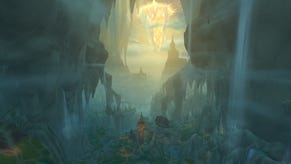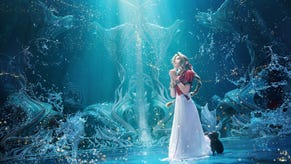Falcom's President Shares the Studio's Secret to Surviving in the Brutally Competitive Games Industry for More Than 30 Years
INTERVIEW | We go in-depth with Toshiro Kondo on Ys VIII, the PS4, his first ever project at Falcom, and more.
This article first appeared on USgamer, a partner publication of VG247. Some content, such as this article, has been migrated to VG247 for posterity after USgamer's closure - but it has not been edited or further vetted by the VG247 team.
How would you like to run your favorite studio? That's what Falcom president Toshiro Kondo has been doing for more than a decade now, ever since founder Masayuki Kato stepped down in 2007 and asked Kondo to succeed him.
Kondo has been playing Falcom games since roughly 1989, when he picked up Ys III for the first time. He was such a big fan of Legend of Heroes III: White Witch that he dedicated a fansite to it prior to joining Falcom. He's still a big gamer to this day, which is evident in his passion for making games.
Since taking over from Kato, Kondo has guided Falcom through the decline of Japanese development, the rise of smartphones, and the studio's transition to consoles. It hasn't always been easy, but a pragmatic approach to game development and a dedicated fanbase has allowed the studio to survive while many others have faded away.
I recently got the chance to sit down and talk with Kondo, where we discussed topics ranging from the upcoming Ys VIII, to Kondo's first ever project for Falcom, to the studio's secret to success. I published an excerpt from this interview a little while ago. Now here it is in its entirety.
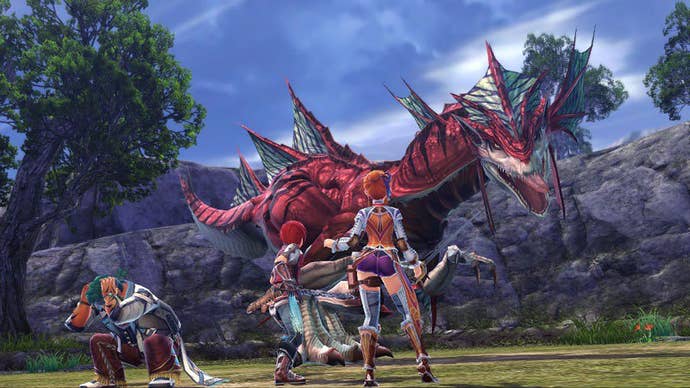
Ys VIII and Legend of Heroes
Ys VIII is the latest game in a long running series. Adol must be getting tired after so many adventures.
Toshiro Kondo: (laughs) In this one he's only 21 so he's still totally fresh, ready to go. The series has been around for 30 years but it's only been four years since he started his adventure.
Interesting. Other franchises like Uncharted have kind of consciously retired their characters like Nathan Drake. Have you ever considered retiring Adol and introducing a new hero?
TK: Adol is the main character. He's always been the main character and it feels like if we were to take him out of that, the game would no longer be "Ys". As you may know, Ys Origin does not feature Adol as a main character and sure enough, the reaction from fans was, "Where's Adol?" The reason for that is that from the very first game, the framing story has been that this adventurer, Adol Christin, he written over 100 travel logs or diaries about his adventures. Because each game purports to be one of those travel logs that we're kind of reading or playing, right? If you were to remove Adol from this, you would lose that framework and it would no longer make logical sense for it to be "Ys" because "Ys" is his stories.
As a longtime Ys fan yourself, what do you look for in the series?
TK: As you may know, the world of Ys is loosely modeled after Europe, and Adol's adventures take him to various places throughout this world. Every time we get a new game we get to see a new location. We get to hear about their legends, their history, and their story. So it's extremely fun looking forward to what you get to discover next in this next new place that Adol goes to. It might be similar to going on a vacation or a travel yourself and that feeling of now knowing what to expect when you get to your destination.
When you guys started working on Ys VIII, how did you see it evolving the series?
TK: Before Ys VIII you may be aware that we released a game called Memories of Celceta for PlayStation Vita. Within that there were two systems in particular. Because Adol loses his memory, he collects his memories throughout his game. That's one system. The other system is that you map out the areas that you're going to. Those two systems were incredibly important. These two systems are really well integrated with the story and they were praised as such from fans. What they wanted to do now with Ys VIII was to take that... combination of gameplay and story and have that work really well together and evolve that and make that even better.
The way that directly relates to Ys VIII is with the mapping. Obviously we can't have the situation where Adol has lost his memories again because that wouldn't make sense, but we still wanted to incorporate this mapping feature. The solution to that was that this time Adol was going to go to an uninhabited island, meaning that no one's mapped it before. At the beginning of the story they're on a boat and it sinks, so a lot of the passengers are scattered over the island. Another reason Adol has to go out there and explore is to hopefully find these other passengers that were with him and find them alive.
So that's why there are dinosaurs there?
TK: Because this is an uninhabited island it allows us the opportunity to play with that element a bit. When were were looking into similar fiction about things like this, we hit on King Kong. In "King Kong" there's a giant hole and from this hole dinosaurs and things like it come out. That was kind of a direct inspiration for why there was dinosaurs and giant creatures in this world.
When I was watching the gameplay footage of Ys VIII, my first thought was, "Oh, it's a little like Monster Hunter." What's your thought on that?
TK: Well in regards to fighting giant dinosaurs, I guess there is some similarities there, but this time we're not necessarily hunting them.
One thing that I've kind of noticed, and maybe this is my perception, but I remember the older games being more dungeon exploration focused, while more recent games have been more combat focused. What has prompted this kind of shift? Why did you decide to go in this direction?
TK: It's a pretty astute observation. Definitely one of the things that we did focus on when transitioning to 3D was combat. That said, if you look back Ys I and II, there's a lot of adventure elements so you find items that will allow you to unlock this part and then move on with the tale. Those are things that I'd like to begin reincorporating into the series from here on out.
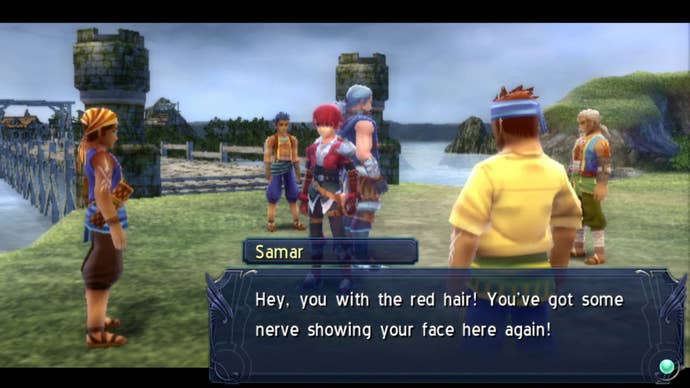
A PSP game, I think it was Ys Seven, gave Adol extra party members. Why did you decide to give him party members and have you ever considered going back to just having Adol by himself?
TK: When we were developing Ys Seven we thought about lots of different things we could do, and one thing that people came up with is that since Dogi's always with him, wouldn't it make sense that they would fight together? If you look back at the history of Ys II for the PC Engine games, that game did have a party. Because through his travels he always seems to meet new people, it kind of makes logical sense for Adol to form a party and fight with them. Beyond that, Ys Seven was actually the first game we made for what in Japan we call a consumer system as opposed to a PC system. We wanted to have kind of a big change, which is why we decided to go with the party system.
That second part's also a great question because there's things that you can do or make the player feel when you only have a solo main character. For example, if you come across a problem within the game or you don't know where to go next, with the party system it's easy to have your party talk to you and give you hints or kind of give you the direction that you're supposed to go. But when you're by yourself, all the decisions are on you and you get that kind of restless feeling like, "What should I do? What should I do?" That was something we were talking about when we were developing "Ys Eight," and the solution was to have the Dana parts. There's actually parts in Ys VIII where you play solely as Dana and she doesn't have a party, and so that's kind of how we were able to offer both in Ys VIII.
Legend of Heroes and Ys are two, at this point, very old series. They've been around since 1980s. What has allowed them to continue through 2017?
TK: One thing that contributes to longevity is that they are changing. Both of the series that you mentioned have their core elements. For example, the core element of the Trails series is the storytelling. I'd use cooking as an analogy here. If we're strongly focused on the story as an ingredient, then how do you use other ingredients to create something fresh and interesting for people? So far that's what we've been able to do with both series, which is why we've been able to last as long as we have. Obviously over that time period users are going to change, too, so it's those people who are playing now.
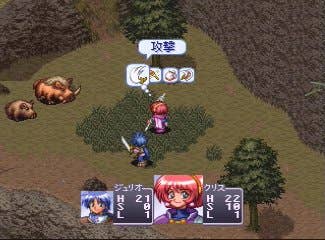
Falcom's Secret to Success
Rising costs and increased competition have made it tough for independent studios like Falcom to survive. What's your secret?
TK: Especially now with the advent of PS4 you're absolutely right. Game development is becoming more and more expensive, and in relation to that we've had to start putting certain parts of development out to third parties. But one thing that might be the secret to this that has been a Falcom tradition for a long, long time is that all of the people on staff absolutely love games and making games.
There's also not necessarily a hard and fast rule that because you entered this company for one particular role that you need to continue in that role. It's very common for people within the company to kind of wear multiple hats and to take on different responsibilities, provided their abilities allow for it. Because they are so dedicated and interested in the games that they make, it really allows people to kind of go beyond themselves and to do lots of other different things. That probably has a lot to do with how we've been able to continue in spite of rising costs. We have a small amount of people, but those people do more things.
There are various merits to having a small team. One is communication. You don't need to spend time or money doing a lot of communication because it's much easier to get everyone on the same page. Another thing is that when you do work on a very small team like this, you know that there's no one else to do certain things but yourselves and that creates a feeling of responsibility toward the project so you're not leaving anything to everybody else. You're taking on the responsibility here yourself within the team to get things done. Because we do work on things with such small teams, that kind of creates the "Falcom feeling" you might get when you play our games.
One thing that kind of just occurred to me, obviously Falcom is one of the oldest studios. As the president of this studio, do you feel kind of a responsibility or almost like a keeper of this rich history?
TK: Yeah, as someone who fell head over heels in love with Falcom's games, I acutely feel the responsibility of being the person in charge. To have fans come and say like, "You ruined this company," or, "You made really bad games," is something that I'm very afraid of happening, so that's why I take the role and responsibility very seriously. Another big source of pressure is that ever since Falcom was established they have never been in the red once, and there's responsibility on that end, too-to make sure that we never do go in the red under my way.
Falcom is traditionally a PC developer. In that light, what's your view on Steam?
TK: All the people that I know that entered the company were really big fans of PC games, which is kind of why they started. However, in Japan the PC market gradually began to shrink. They were put in a position where in order to continue they needed to kind of shift everything towards consoles. We have a little bit of a hope that should Steam become more and more popular in Japan, that will give us an opportunity to return to developing games natively for PC.
Steam just recently became available in Japanese so that might finally help popularize it a little bit. Do you agree?
TK: Definitely that's the hope. If Steam would've been there to begin with, though, who knows if we would've even made PS4 games. When we were developing for Steam there was always kind of this grass is greener mentality about console gaming and, especially in Japan, the success of console gaming which is kind of what led us to challenge outselves to start developing for consoles in the first place. That ended up having a really positive impact as well, so it's kind of hard to say.
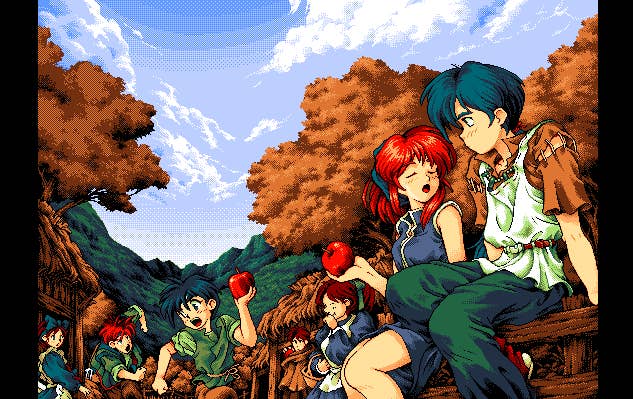
From a more personal standpoint, I know that you were a big fan of Falcom games before you started. What was it like the first time you went there and got to be part of it?
TK: It had been my dream for so long to work there, there was just this really big feeling of disbelief, just the fact that I could not believe that I was there working on these games in this place.
One thing that's really memorable for me is that I got work on a game I loved right when I started, which was [Legend of Heroes III: White Witch]. They had me working on an extra scenario for the PC version of that game, and I was just kind of like, "Does life really turn out this way?" Not only am I now working at Falcom, I'm able to work on this thing which I really love very much.
At that time I had never written a scenario before. I was told, "You have a week to write it and you have a week to implement it, so good luck." At the time I thought, "I don't have enough time to do this," but then I thought, "But this is an opportunity, and if I don't deliver then I might not be given an opportunity like this ever again." So I worked as hard as I could to get it done. I actually went out and bought a book about script writing and read it. I worked as hard as I could to finish it and finished everything in a week.
It's really important that Falcom has given people the opportunity where it's like, "We know you want to do this. You're super interested in this, so here's your chance." When I was given that chance I had to bust myself for a week, but I did it and it all worked out. Now I want to be able to offer the same opportunities to the people that work under me.
How has being president changed your perspective?
TK: When I was still working in development, projects had a tendency to last a really, really long time. The best example of that was when I was working on Trails and it ended up taking two or three years. There came a point when the management came and said, "You need to release something." Now I'm in the position where I have to say, "Okay, you guys can't take three years to make a game."
But because I've always been so super focused on quality and everything, it makes me feel kind of bad to have to put those limitations onto the staff that works under me.


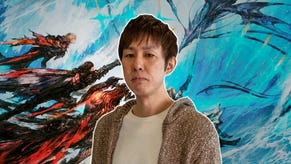
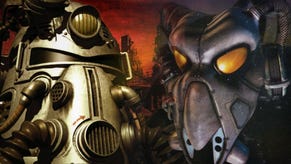
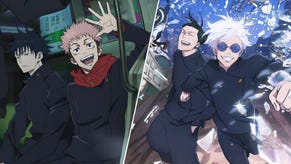
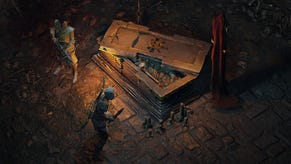
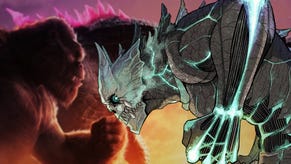
_ddwYK80.png?width=291&height=164&fit=crop&quality=80&format=jpg&auto=webp)
